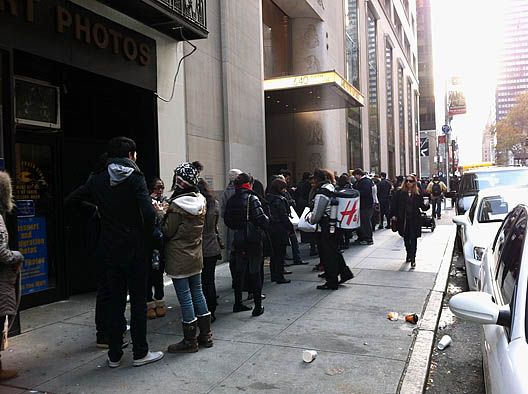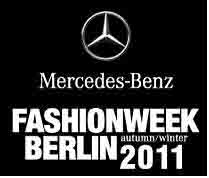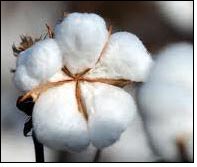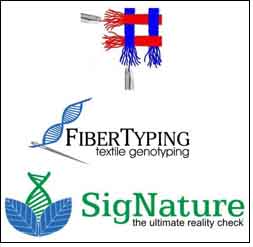 Rita Galkina
Rita Galkina Tini Tani
Tini Tani Billy Hazel
Billy Hazel Theo Ortengren
Theo Ortengren Weronika Kumanek
Weronika Kumanek

A new study has found that people whose last names begin with letters towards the end of the alphabet are more likely to respond quickly to limited-time shopping deals. The idea is that if you spent a lot of time being sent to the back of the line as a child, you'll be faster and scrappier in time-sensitive situations. Explains the Wall Street Journal:
In one of the researchers' four experiments, people were emailed the chance to get four free tickets to attend a highly-ranked women's basketball game. In order to get the tickets, students had to reply ASAP via email since the tickets were in limited supply and offered on a first-come, first-served basis.
The fascinating results, this way>>
The average response time was 22.7 minutes. Those who had surnames that began with one of the last nine letters of the alphabet was 19.38 minutes and those with a surname from the first nine letters of the alphabet was 25.08 minutes.
Married women who'd changed their names responded according to their maiden names, adding credence to the childhood theory. We're tempted to test this out next time we're waiting to get into a sample sale, but we're a little worried that while we're quizzing people about their last names, some wily Wilson, Xavier, Young, or Zimmerman will nab our place in line.
 Marks & Spencer Group Plc announced Interim Management Statement for Quarter 3, 2010/11, 13 Weeks to 1 January 2011.
Marks & Spencer Group Plc announced Interim Management Statement for Quarter 3, 2010/11, 13 Weeks to 1 January 2011.
Marc Bolland, Chief Executive said:
"Marks & Spencer traded well through the important Christmas period despite the severe weather as customers continued to return to M&S quality.
"We delivered a great Christmas for our customers, from our stylish occasionwear to our innovative festive food. I would like to thank all our employees, in particular the store and operations teams, for doing a wonderful job in very difficult conditions to minimise the disruption to our customers."
Trading summary
Clothing market share was up 70bps to 11.8%1 (Kantar: 12 weeks ending 1 November 2010) with growth across all areas. We delivered better styling and choice at great quality and value across our ranges with products to suit every budget. Customers responded well to our interpretation of the season's key trends such as Fair Isle knitwear and accessories.
As they continued to manage their budgets carefully, customers also came to us for wardrobe staples, with sales of underwear, sleepwear and footwear performing strongly. In Food, market share was up 10bps to 3.9%2 (Kantar: 12 weeks ending 28 November 2010) as we continued to offer unrivalled quality and great value. Customers were delighted with our level of innovation, which saw us launch more than 600 new products during the quarter, including our Christmas desserts and party foods.
We ran bigger, more impactful promotions, such as our Deals of the Week and half price champagne, which proved to be extremely popular. We are also pleased to record our biggest ever day in Food on Thursday 23 December with sales of more than £50m.
M&S Direct sales were up 25% in the quarter, as we came up against the anniversary of the launch of our popular Shop Your Way service. International sales were up 4.5%, reflecting a good performance across most of our markets offset by difficult trading conditions in Ireland and Greece.
We estimate that the adverse weather conditions had a c.1% impact on reported Food sales, and c.3% on General Merchandise sales, offset by a c.3% positive impact to General Merchandise due to the inclusion of the first five days of the Sale in the third quarter.
Outlook
We continue to expect the trading conditions ahead to be more challenging as consumers' disposable incomes come under pressure from increased VAT rates and the impact of public spending cuts. In addition, we are facing increased commodity prices and significantly tougher comparatives. As a result we remain cautious about the outlook but are confident that we are well positioned to meet the changing needs of our customers.
Guidance
Existing guidance for the financial year 2010/11 remains unchanged.
Marks and Spencer Group plc will report its fourth quarter trading statement for 13 weeks ending 2 April 2011 on 6 April 2011.
Jain Chem Ltd. based in Taylors, S.C (USA) which manufactures specialty chemicals, polymers and coatings has recently acquired Ulterion International Inc.
Ulterion International Inc is based in Braselton, Ga and develops as well as supplies high quality functional polymers, specialty chemicals for denim and garment processing, water-based coatings for sustainable packaging uses, fire retardants for textiles.
Ulterion will be functioning as a completely owned unit of Jain Chem Ltd and will promote and supply polyethylene terephthalate-based resin technology, polyester polyols, coatings and fire retardants for a wide ranging variety of industrial uses.
 Lectra, the world leader in integrated technology solutions dedicated to industries using soft materials—textiles, leather, industrial fabrics, and composites materials—, brought together its "Privilege" partners for a third education conference. 52 participants representing 24 schools from 9 countries—Germany, Brazil, China, the United States, France, Italy, the Netherlands, the United Kingdom, and Switzerland—met in Shanghai, China, in November 2010.
Lectra, the world leader in integrated technology solutions dedicated to industries using soft materials—textiles, leather, industrial fabrics, and composites materials—, brought together its "Privilege" partners for a third education conference. 52 participants representing 24 schools from 9 countries—Germany, Brazil, China, the United States, France, Italy, the Netherlands, the United Kingdom, and Switzerland—met in Shanghai, China, in November 2010.
Lectra held its first two education conferences in Bordeaux, France. The company wanted to capitalize on its worldwide presence to organize this event in China, a key country in the fashion industry, which presents challenging opportunities and has one of the highest growth rates in the world. Lectra has been present in China since 1986, and in Shanghai in particular, where its headquarters for Greater China, its International Advanced Technology Center, and the Asia Call Center are located. With 90 employees divided among its five main offices in Shanghai, Hong Kong, Beijing, Guangzhou, and Taipei (Taiwan), the Greater China subsidiary today maintains close ties with approximately 2,000 customers.
On the first day, participants were welcomed at Lectra's Shanghai offices by Véronique Zoccoletto, Lectra's Chief Human Capital Officer and Chief Information Officer, responsible for Lectra's Education Program, and by Andreas A. Kim, Lectra's Managing Director for Greater China and Japan.
"Our objective was to bring our participants together to encourage exchanges and to share and enrich experiences. This year, we thought it would be especially interesting to get them together for a two-day immersion in China and to address the training of future industry professionals with a global and innovative focus," said Véronique Zoccoletto.
The morning was dedicated to the presentation of Lectra’s latest technological innovations. Two specialists from Lectra and X-Rite, a Lectra partner and the world leader in color measurement and management technology, showed how the perfect compatibility between Kaledo—Lectra's textile and fashion collections creation platform—and the ColorMunki and PANTONE FASHION + HOME solutions by X-Rite, are able to solve the problem of color management.
Lectra also highlighted how fashion professionals can benefit from its Modaris pattern-making solutions and 3D virtual prototyping for apparel, Modaris 3D Fit. Sandra Kuijpers, Professor at the Amsterdam Fashion Institute in the Netherlands, who teaches these solutions, explained how integrating Modaris 3D Fit into its program had taken the Institute to a new level. She also presented the models created by her students, who were awarded prizes during a contest organized in cooperation with Lectra.
Lectra's partners particularly appreciated their visit to one of the eight Chenfeng production centers, one of China’s ten most important apparel manufacturing companies. This group, which employs 6,400 people, is a best partner of major global brands and sees product quality as one of its top priorities. From the design department where Modaris is used, through the cutting phases using the Vector automated cutting solutions, participants were able to assess the quality and the organization established by Chenfeng to optimize its production processes and make them more flexible.
 From January 19 - 22, 2011 a great selection of German and international designers will show their latest collections under the umbrella of Mercedes-Benz Fashion Week Berlin at Bebelplatz, in the historic heart of Berlin. More than 40 brands are part of the event and contribute to a strong week for industry professionals attending the runway shows.
From January 19 - 22, 2011 a great selection of German and international designers will show their latest collections under the umbrella of Mercedes-Benz Fashion Week Berlin at Bebelplatz, in the historic heart of Berlin. More than 40 brands are part of the event and contribute to a strong week for industry professionals attending the runway shows.
Many returning and new designers build a strong line-up for the season Autumn/Winter 2011. The following shows, presentations and receptions are part of the official schedule: AF. Vandevorst, Allude, Anja Gockel, Augustin Teboul Installation, Baltic Fashion Catwalk, Blacky Dress, Bllack Noir, Burda Style Group Cocktail, ('Est Tout, Escada Sport, Eva & Bernard Presentation, Dawid Tomaszewski, Dimitri, Frida Weyer, Gala Fashion Brunch, Green Showroom, G-Shock Launch Featuring Rinzen, Guess Jeans, Hugo by Hugo Boss, Irene Luft, Kaviar Gauche, Kilian Kerner, Lala Berlin, Laurel, Lena Hoschek, Lever Couture, Maicco, Marcel Ostertag, Mercedes-Benz & VOGUE Fashion Night, Michael Sontag Installation, Michalsky, Mongrels In Common, Odeeh Installation, Patrick Mohr, Perret Schaad, Puma & Sakina M'sa Launch The Iconic Grip Bag Edition, Rena Lange, Romanian Designers, Schacky and Jones Installation, Schumacher, Stephan Pelger, Unrath & Strano And Vladimir Karaleev.
The winner of last season's Designer for Tomorrow Award PARSIVAL CSERER presented by Peek & Clop¬penburg Dusseldorf will show his first solo collection. Title sponsor Mercedes-Benz will present a group show of three Swedish designers that are coming to the German capital for the first time: CAMILLA NORR¬BACK, DIANA ORVING and IDA SjOSTEDT.
"Again this season we are able to use our global fashion platform to showcase international designers next to extraordinary German designers at Mercedes-Benz Fashion Week Berlin," says Anders Sundt Jensen, Vice President Brand Communication Mercedes-Benz Cars. "With support from the Swedish Institute Stockholm we can offer the perfect platform for three Swedish designers to be showcased in front of the fashion world in Berlin."
Berlin, now considered one of the fashion metropolises of Europe, will host thousands of industry guests to Mercedes-Benz Fashion Week Berlin as well as to the contemporaneous trade shows that will be taking place such as Bread & Butter, PREMIUM and others. The confluence of the city's creative energy and the commercial business opportunities stand to continue the increase of global perception of Berlin as an international fashion capital.
"The large number of shows and events within the framework of Mercedes-Benz Fashion Week Berlin shows the huge interest in being part of the new fashion metropolis that Berlin has become", states Maia Guarnaccia, Vice President lMG Fashion, Europe. "We are very thankful for our sponsors' support in implementing the event and their commitment to underwriting these cultural and creative opportunities for the industry."
Mercedes-Benz Fashion Week Berlin is made possible by the following sponsors: Mercedes-Benz, DHL, Maybelline Jade and Peek & Cloppenblirg KG Dusseldorf and will again be endorsed by the Senate for Economics, Technology and Women's Issues, Berlin.
 The Committee of Secretaries involving ministries that deal with raw and cotton yarn exports met in New Delhi on January 14th as planned. No decision was made with regard to revising the export quota limit for raw cotton and cotton yarns.
The Committee of Secretaries involving ministries that deal with raw and cotton yarn exports met in New Delhi on January 14th as planned. No decision was made with regard to revising the export quota limit for raw cotton and cotton yarns.
The maximum export limit will be 5.5 million bales of 170 kg each. On January 10th, India’s Director General of Foreign Trade allocated 1.9 million bales to 928 exporters, which have to be shipped by February 25th. This allotment of remaining bales will fulfill the export quota limit of 5.5 million bales.
A senior executive of a textile conglomerate who wanted to remain anonymous advised this scribe via a telephone conversion on Saturday morning U.S time (January 15) that the committee of secretaries that met Friday, January 14th did not make any decision on revising the quota limit of raw cotton and cotton yarn.
Mr. Subhash Grover, Chairman and Managing Director of Cotton Corporation of India confirmed this information via a telephone conversation from Mumbai, India and advised that India will maintain its status quo with regard to raw cotton export.
In summary, as of January 15th, India’s export quota limit for raw cotton stands at 5.5 million bales (170 kg each, with February 25th being the deadline for physical shipment of 1.9 million bales.
 Applied DNA Sciences Inc, a provider of DNA-based anti-counterfeiting technology and product authentication solutions, announced additional sales and continued growth in developing its global textile business. Expanding on its FiberTyping business, APDN is adding new customers and developing existing business, utilizing its proprietary SigNature DNA technologies for marking and authenticating genuine textile and apparel.
Applied DNA Sciences Inc, a provider of DNA-based anti-counterfeiting technology and product authentication solutions, announced additional sales and continued growth in developing its global textile business. Expanding on its FiberTyping business, APDN is adding new customers and developing existing business, utilizing its proprietary SigNature DNA technologies for marking and authenticating genuine textile and apparel.
DNA Authenticating for Cotton Labels
Consumers rely on product labels to reflect the true content and authenticity of the product. This is especially true considering the cost increase of cotton. Recently, a report from the National Inflation Association announced that the cost of cotton has increased by 54% and this increase has been making its way to store shelves across the globe. Having a metric that can verify cotton quality and label compliance is a key benefit of FiberTyping. It should be of special utility to enable enforcement by FTC and US Customs, as well as retailers and brand owners to ensure compliance with textile labeling laws.
FiberTyping: Supply Chain Security
FiberTyping is a patent-pending genetic test that enables retailers, yarn manufacturers, and even cotton growers to verify whether the original cotton fiber was used to manufacture the cotton product. From raw fiber to yarn to greige fabric and ultimately, to finished fabrics, FiberTyping DNA testing can identify the exact cotton species (G.barbadense or G. hirsutum) in any cotton labeled product.
FiberTyping requests continue to be fulfilled for yarn manufacturers from India, Pakistan, China, and Supima, the promotional organization of the American Pima cotton growers. APDN is working within many textile sectors to add strong positioning in the overall supply chain. One large UK company, with over 700 retail outlets, has engaged APDN to test towels and bedding products to determine whether they contain 100% pima cotton, as labeled. This is but one example of how customers are using FiberTyping to better control their supply chain to ensure 100% accountability.
Made-In-Yorkshire Anti Counterfeiting Technology
To support continued business development efforts in the UK and Europe, APDN has opened its new DNA textile authentication laboratory and European office at the Textile Centre of Excellence (TCE) in Yorkshire. APDN is partnering with the TCE in a joint effort to globally expand the DNA taggant marking and product authentication technology in the European Market, with a reach to the Pacific Rim. Additional orders have been fulfilled and will continue to develop with TCE and customers throughout Europe, as a part of this ongoing partnership.
Bill Macbeth, Managing Director of the Textile Centre of Excellence, said, "We have now perfected the process of protecting top quality textiles with the APDN botanical DNA. The Yorkshire 'Signature' protection is now available as an affordable and foolproof way of guaranteeing that products produced in this region are authentic. The next stage will see leading brands using the technology to 'audit' their distribution chains and identify where product substitution is taking place. There is massive worldwide market potential for this approach, with forensic testing now available at the new laboratory in Huddersfield."
Peter Ackroyd, Consultant to the International Wool Textile Organisation, said, "Several of the large wool and wool worsted merchants in the leading fabric market have seized the opportunity to adopt the use of APDN's botanical DNA protection to guarantee the provenance and intellectual integrity of their brands in key and emerging markets throughout the world. The APDN DNA taggants provide consumers with excellent proof of provenance and protection for premium priced goods and guarantee authenticity worldwide."
Another area of growth is the woven and printed label industry. Labels are used throughout the textile industry for product recognition and brand integrity. Adding SigNature DNA taggants to designer labels provides brand security and counterfeit protection. APDN has recently received a contract from a leading labeling company out of Milan, Italy. Their customer base is made up of leaders in high end Italian manufacturing to include apparel, hand bags, leather products and footwear.
Recently, APDN began working with Prestigio en Moda of Mexico. Prestigio is a major uniform manufacturer calling on government and federal agencies, including security groups and police departments. Prestigio was looking for a technology it could rapidly and cost effectively implement, to insure the integrity of its products.
"We immediately saw the potential of this high-end visionary technology as well as the possibilities it could bring to intelligently differentiate our products and to enter into new markets," stated company owner and General Director, Moises Rodriquez.
 Around 1700 products bearing fake labels were traced during an inspection which was carried out from January 10 to 12 before the shopping spree began for the Chinese New Year which is on February 3. The government of Taiwan cautioned the consumers to check the clothing as well as accessory labels after this incident.
Around 1700 products bearing fake labels were traced during an inspection which was carried out from January 10 to 12 before the shopping spree began for the Chinese New Year which is on February 3. The government of Taiwan cautioned the consumers to check the clothing as well as accessory labels after this incident.
According to the Bureau of Standards, Metrology and Inspection, on the whole 1,689 clothing products, shoes as well as accessories were identified from various outlets across various cities in the country which had fake labels. These cities included Hsinchu City, New Taipei City and Kaohsiung.
The bureau reported that some of the labels did not show the country of origin of the products whereas others were incoherent. Some of the clothing products had separate labels showing different countries of origin like Hong Kong on one and South Korea on the other.
The bureau warned the retailers to remove the products bearing such irregular labeling from the store shelves. In case they fail to do so they will be penalized with NT$20,000 (US$689) to NT$200,000.
 Wool prices soared to a record high at the first sale after the Christmas recess and Cape Wools Merino indicator gained 11,8% compared with the previous sale in December to close at R70.54/kg (clean) – up 22% on the opening sale in August 2010.
Wool prices soared to a record high at the first sale after the Christmas recess and Cape Wools Merino indicator gained 11,8% compared with the previous sale in December to close at R70.54/kg (clean) – up 22% on the opening sale in August 2010.
This increase is in line with the Australian market where the indicator gained over 9% compared with the final sale in December. The market is currently driven by strong demand for fine and the better style wools, particularly from Europe, while supply concerns for the rest of the season also played a role, particularly in view of the floods in Australia.
Good styles and fine wools are expected to be in short supply for the rest of the season.
The rand, at R6.79 was up 1.7% against the US dollar. It appreciated by 3.3% against the euro to R8.83.
Major buyers were Standard Wool SA (4 505 bales), Modiano SA (4 451 bales), Lempriere SA (2 125 bales) and Stucken (2 000 bales).
The prices of all long wool categories were up, with 19.5 micron posting the biggest increase of 14.5%.
Average prices for good top-making (MF5), sound, long fleeces (less than 1% seed content) were as follows: 19 microns gained 8.7% to R91.80/kg; 19.5 microns rose 14.5% to close at R83.47/kg; 20 microns were 13.7% dearer at R75.71/kg; 20.5 microns rose 10.2% to R70.93/kg; 21 microns strengthened by 9.2% to R69.74/kg; 21.5 microns were up 8.5% at R68.40/kg and 22 microns were 13.9% dearer at R70.01/kg.
The next sale is on 19 January when approximately 14 000 bales will be offered.
 Topshop has announced it will be welcoming Ashish back for another collection of his printed t-shirts this January.
Topshop has announced it will be welcoming Ashish back for another collection of his printed t-shirts this January.
Inspired by the fast-food industry, mixed with a touch of Ashish's trademark comic style, the collection is made up of two oversized t-shirts and two sweatshirts with images of convenience food featured on the front. These include an ice cream sundae, a fried breakfast in the shape of a smiley face, a hotdog 'happy meal' and a colourful iced doughnut. The bright pictures stand out against the plain white, navy and black backgrounds.
Affectionately known by the style set as the 'King of Sequins', Ashish Gupta first worked with Topshop in 2004 when he won NEW GEN sponsorship. His collections mix sportswear and high-octane glamour, often using bright colours, sequins and prints.
Ashish commented: "The inspiration was very easy - I love junk food. I was thinking of what I would like to wear to the gym, and I thought junk food on t-shirts and sweatshirts would be perfect. Perhaps not very motivational, but definitely very amusing."
This collection marks Ashish's sixth with Topshop and will be available in the Oxford Circus, Brompton Road, Selfridges and New York stores and on Topshop's website from January.
Topshop was established in 1964 and is part of Arcadia Group Ltd. Sir Philip Green became owner of Arcadia Group Ltd in 2002.